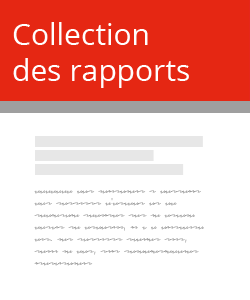Résumé
La notion de "cohésion sociale "rencontre, depuis une vingtaine d'années, un écho grandissant dans les médias, le monde politique, associatif, professionnel ou institutionnel. Le Crédoc a réalisé une enquête à la demande de la Direction Générale de la Cohésion Sociale afin de connaître les perceptions du grand public dans le domaine. L'image d'une société individualiste et inégalitaire domine nettement le corps social. Au total, plus de huit personnes sur dix se figurent une société peu unie. Pourtant plusieurs indicateurs de l'enquête viennent tempérer cette vision négative. Ils montrent que les liens sociaux ne sont pas si distendus et que le sentiment d'appartenance au territoire hexagonal reste très prégnant. Pour renforcer la cohésion du pays, les Français défendent l'idée d'un modèle de solidarité mixte, alliant l'intervention de la puissance publique pour garantir à chacun un certain niveau de bien-être (un logement, un emploi, et l'accès à une éducation de qualité) et les efforts de chacun dans ses relations avec les autres. Le respect mutuel et la tolérance semblent en particulier un passage obligé pour réconcilier le désir des individus de suivre leur chemin personnel en s'affranchissant des règles ou normes autrefois imposées et l'établissement d'une société unie.
Abstract
Within the last twenty years "social cohesion" has become a notion broadly used by the media, in the political world, by associations as well as by other professional or institutional actors. The CRÉDOC conducted a survey in behalf of the Direction Générale de la Cohésion Sociale in order to explore public opinion on this topic. The perception that society has become individualistic and unequal is widely held. Eight out of ten people think that the society is poorly unified. However, the survey reveals some indicators that attenuate this negative view. These indicators show that social relations are not that loose as they may appear and that the feeling of belonging to the national territory is still prevalent. In order to strengthen the cohesion of the country French public opinion is pleading for the model of "mixt solidarity" combining the intervention of public power, which is meant to guarantee a certain level of well-being to everybody (housing, employment, access to a good level of education), and individual efforts intended to improve relations with the others. Mutual respect and tolerance appear as requirements in order to reconcile the individual claim for living one's life independently by disengaging from rules and norms formerly imposed and the establishment of a united society.
Follow our Web flow in English

 142, rue du Chevaleret 75013 Paris
142, rue du Chevaleret 75013 Paris
 01 40 77 85 10
01 40 77 85 10

 station Chevaleret
station Chevaleret
 station Bibliothèque
station Bibliothèque

 station Bibliothèque
station Bibliothèque

 arrêt Nationale
arrêt Nationale